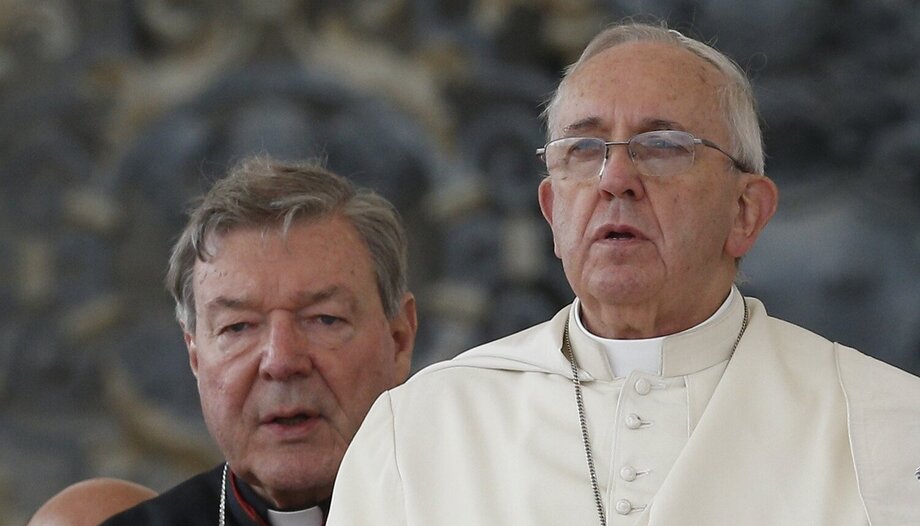The Cardinal George PellIn his role as the first prefect of the Secretariat for the Economy, he showed courage and - as in the Christian life - displayed zeal, conviction and determination, having "seen" and understood before others "which was the path to follow". Pope Francis put it in black and white in a letter addressed to the people working in the Secretariat for the Economy. Economywritten a week after receiving them at a hearing in mid-November.
On that occasion, the Holy Father launched an invitation to move forward along the path already undertaken almost ten years ago with the establishment of the Agency, especially with regard to transparency, control and more agile and efficient procedures within the Roman Curia.
Concepts that he now reiterates more clearly in this letter released by the same Dicastery for the Economy last December 12: "Looking back and noting the current situation, I cannot fail to see the many advances that have been made," Francis began, also highlighting the numerous appreciations received for the work carried out following the indications of the first Prefect Pell, so that the patrimony of the Holy See would be mission-oriented, avoiding the risks and mistakes of the past.
The foundations laid by Cardinal Pell have allowed his successors to promote new reforms, many of which have been approved under the direction of Father Juan Antonio Guerrero, who has worked "with a style founded on dialogue, concreteness and simplicity," acknowledges the Pontiff.
The journey has just begun
But the path of reform is by no means finished. "On the contrary," writes the Pope, "it has only just begun," because as for all the living realities of the Church in general, and of the Roman Curia in particular, one must always orient oneself towards what is best, keeping a watchful eye on the effects of the various changes, adapting where necessary.
"We must not forget" - the Holy Father adds - "that the correct management of the patrimony and its use is a testimony given to all of how much can be done with little", and the work carried out by those who work in this context of "economy of mission" is a true service rendered to the universal Church.
A job that is undoubtedly "delicate" because the risk of transforming authority into command or recognition and respect into fear is just around the corner, along with the temptation to "exercise power instead of making decisions" or even to avoid using money where it is needed to increase and make the Church's mission flourish, for example in those circumstances "where there is more need in a disinterested way".
A clear warning to invest resources appropriately together with the need to exercise the "ability to listen and be listened to", but also to engage the various professional and technical economic skills not on the basis of an "arbitrary will of those responsible for deciding or authorizing", but with the aim of leading the various initiatives to be supported "towards the common good".
Of course, you also have to be loyal to know how to "say no when what is represented to you or what you find in the controls betrays the mission", rather in favor of particular interests, or with the violation of the norms for purposes alien to the Holy See and to the Church and its mission.
Prudence and loyalty
"Prudence and loyalty," the Pope therefore asks, "for the common good of our work community, of the Church, of the faithful and of those in need." A service that must certainly be carried out with "professionalism, dedication, in-depth study", without, however, forgetting "humility, a willingness to listen, a spirit of service and, finally, vigilance and a culture of legality and transparency".
Faced with the economic deficit of the Holy See, which annually erodes a part of its patrimony, the Pope asks to "reverse the trend", inviting everyone to "be ready with modesty and spirit of service to renounce their own particular interest for the sake of the common interest", freeing themselves from rigidity and opening themselves to updating.
Rewarding merit
The Pontiff's thinking is, on the one hand, to hire new figures - competent, ethically prepared and professional - but also to give those already working in the Holy See the possibility of renewal, offering them "training, opportunities for growth, new experiences", without diminishing the signs of trust and recognition. This also means "fair remuneration", "the fairer the more it is linked to results and to the contribution that each one makes to the service of the Church". Avoid careerism, but certainly reward merit.
The same must apply in the case of external suppliers to whom the Holy See has recourse: "ethics, ability and professionalism, at the right price for an equitable benefit," as has already been regulated in recent years. And for the patrimony in general, the fruits of whose management must also be shared equitably "so that all have what they really need".
Investments, Pope Francis further specifies, "must have neither the aim of speculation nor that of accumulation" and the same must apply to the budgets and endowments available to the various entities, so that there are not "rich entities and poor entities" but harmony throughout the Holy See, because all "participate in the realization and pursuit of the same good".









